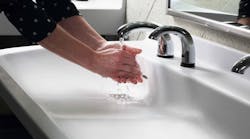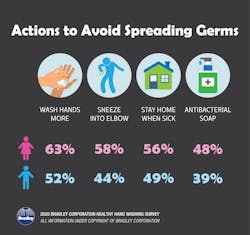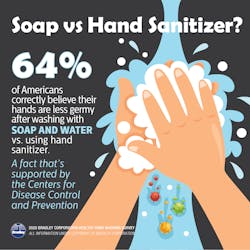Hand Washing Survey Reveals it Matters to People
Menomonee Falls, WI (March 12, 2020) – For the past 11 years, Bradley Corporation has conducted its Healthy Hand Washing Survey to track American’s hand washing habits and their reactions to germs, the flu and colds.
The annual survey queried American adults and youth online Dec. 11-16, 2019. Participants were from around the country, were 14 years and older, and were fairly evenly split between men and women (47% and 53%).
“Thorough hand washing with soap and water remains the best way to reduce the spread of disease-causing microorganisms like COVID-19,” says medical microbiologist Michael P. McCann, Ph.D., professor of biology, Saint Joseph's University. “Soap and water, used as per the evidence-based recommendations of the Centers for Disease Control and other government agencies, will help reduce the spread of flu and other illnesses in the home and work place.”
Bradley Corp. is a leading manufacturer of commercial plumbing fixtures, washroom accessories, restroom partitions, emergency fixtures and solid plastic lockers.
For more information, visit THIS LINK.


